UK SPINE - outputs and outcomes
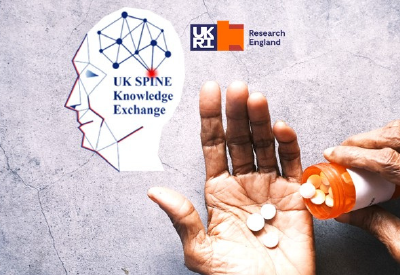
UK SPINE was set up to build a knowledge exchange[1] network, focussed on the mission of improving healthspan for patients with multiple age-related conditions by accelerating the discovery, development and testing of new drugs by better understanding the underlying biology driving these conditions.
The novel approach we have implemented is based on a collaborative network of six research core partners, all focused on a common goal. This structure means that multidisciplinary teams bring together diverse capabilities and resources across the drug discovery and development pipeline. This is implemented through a flexible collaboration model established over four years of formal partnership.
Since 2018 UK SPINE, with the help of almost £6.5m of funding from Research England, has worked to fulfil the following objectives: to build a KE network with rapid information flows across it, to capitalise on the UK’s leadership in ‘open innovation’ and translation and to build a multi-stakeholder movement working together towards the development of novel therapeutics.
During this time the network has funded over 40 projects. Outputs include (also see figure 1): 7 academic papers so far, 6 projects resulted in new datasets, 5 projects led to new methods, over 10 targets have undergone in depth interrogation, 5 of these have progressed into compound identification, 4 projects produced new compounds, and 2 human trials are underway.
A critical focus of UK SPINE has been knowledge exchange which contributed to a number of these projects delivering new, or strengthening existing, collaborations. Many of these collaborative projects have spanned disciplines and sectors. These relationships have been formed and fostered through the extensive events and communications that have been run through UK SPINE. Over 20 events have been run throughout the 4 years of work, ranging from specialist expert roundtables, to annual conferences and online webinars. A communications strategy has also buoyed the network activities through social media and a central website.
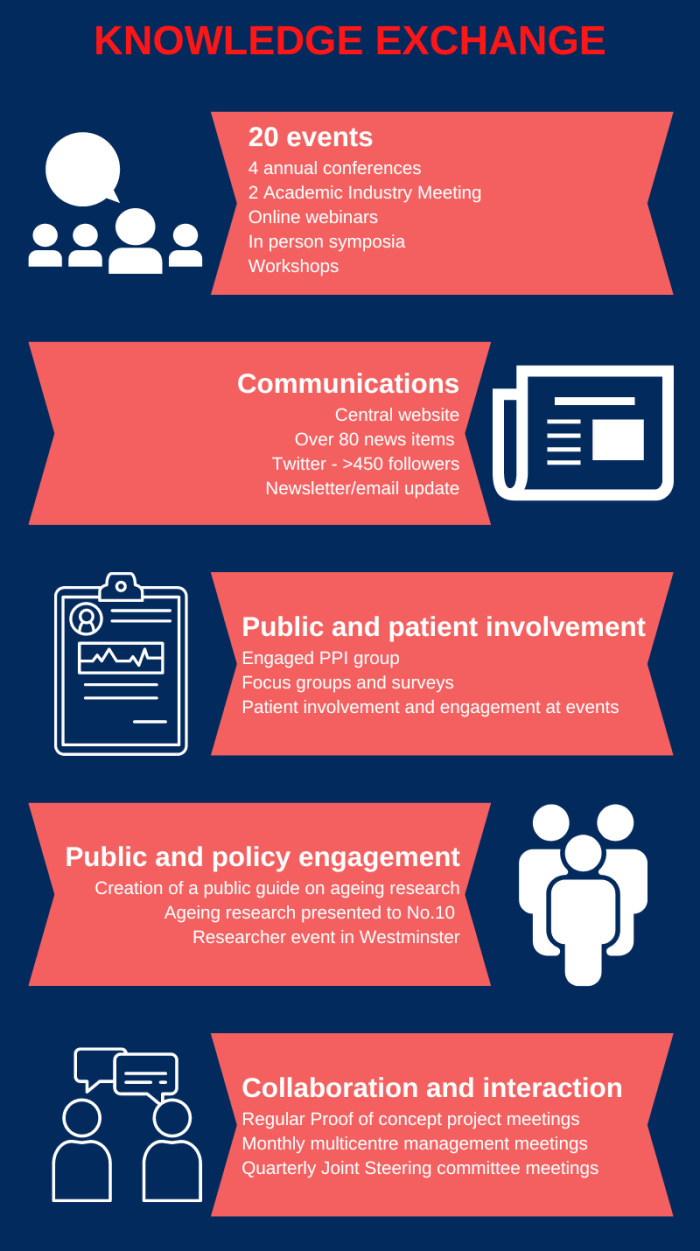
The number of organisations the network has interacted with has greatly increased in scale during the time of funding. Analysis has shown that during the first 3 years of the project the network has increased more than 4-fold from 69 participants to 292. In just the last year, UK SPINE has had meaningful interactions with over 40 organisations across sectors ranging from industry to patient groups, associations and funders to government departments and policy makers (see figure 2).
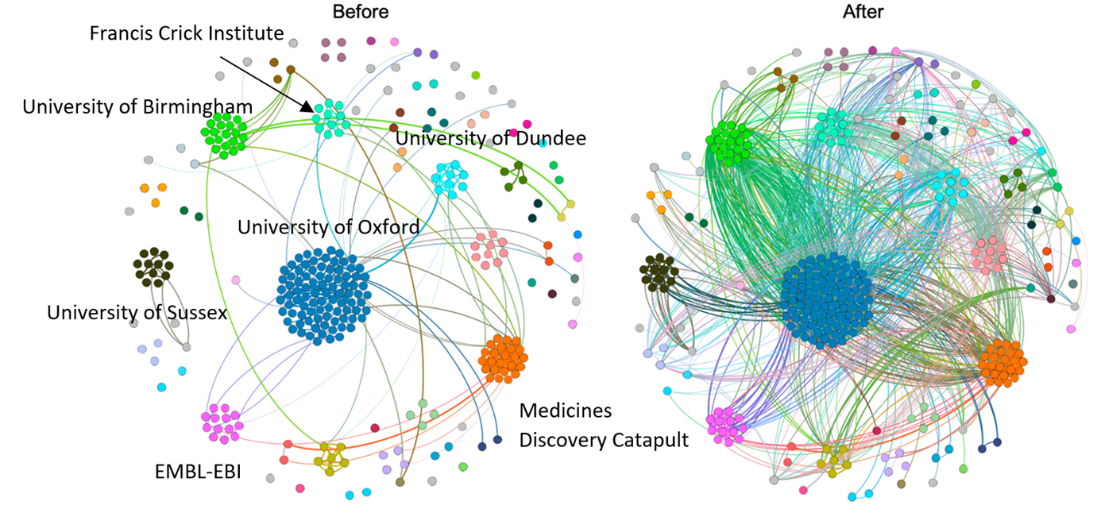
These interactions have provided a platform linking external stakeholders with parts of the core network, bringing expertise in as well as disseminating outputs, while also providing avenues for engagement and lobbying of ageing research, thereby raising the profile of geroscience[2] and its potential, contributing to creating a ‘movement’.
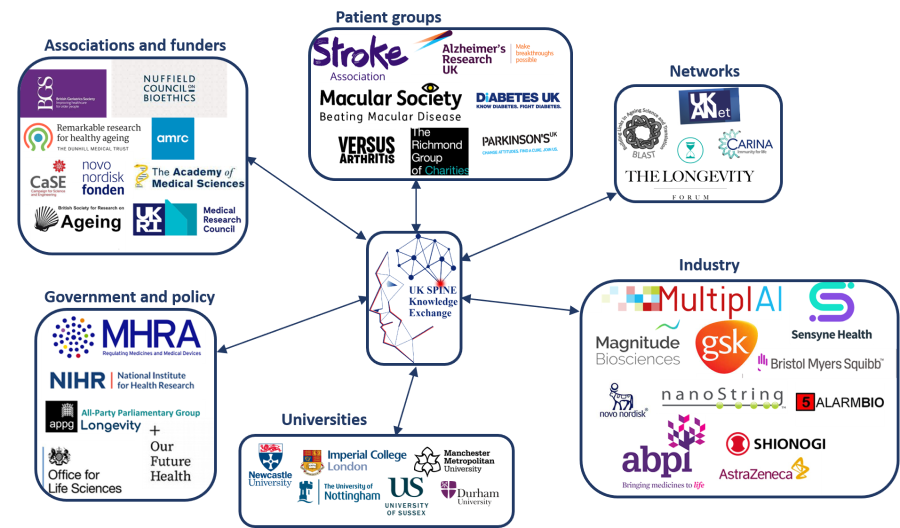
Additional work has been undertaken to build and maintain this movement. During Evidence Week, the field was taken to Parliament to inform MPs, ministers and policy makers and a call made for increased funding, coordination, regulatory reform and equitable access to the medicines developed. This coincided with Longevity Week, where UK SPINE collaborated with The Longevity Forum on the Science Summit event in Oxford. This interest highlights the growing importance of the field and the effort being made to bring together the lines of research to contribute towards improving healthspan.
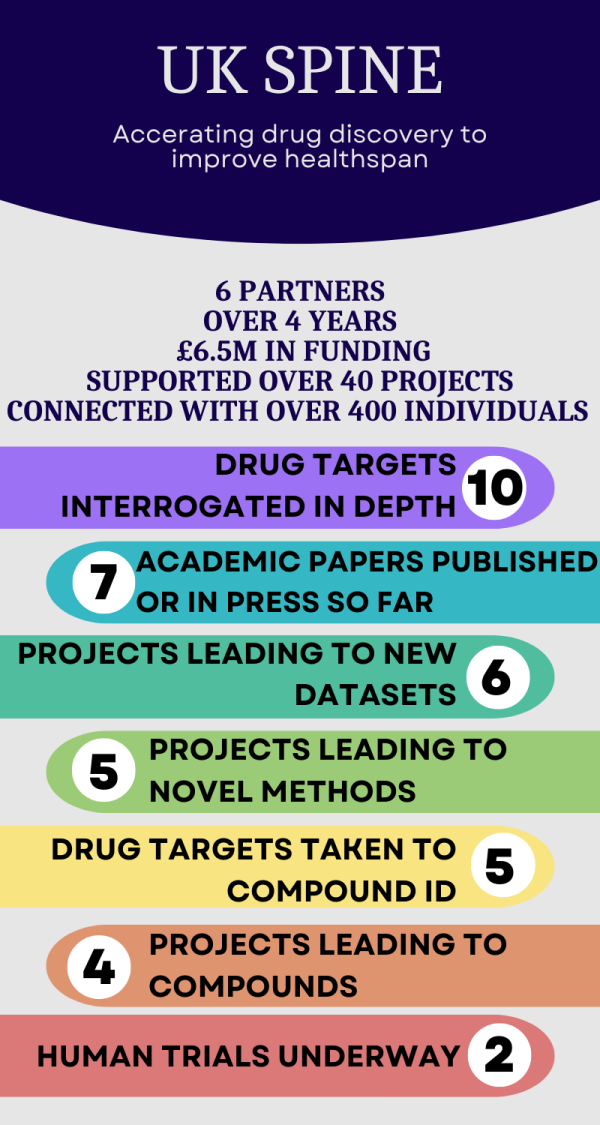
Download the UK SPINE outputs and outcomes as a pdf.
[1] The Association of Technology Transfer Professionals (ATTP) defines knowledge exchange as ‘a collaborative, creative endeavour that translates knowledge and research into impact in society and the economy.’
[2] Geroscience has been defined, by the National Institute on Aging as ‘the intersection of basic aging biology, chronic disease, and health’.